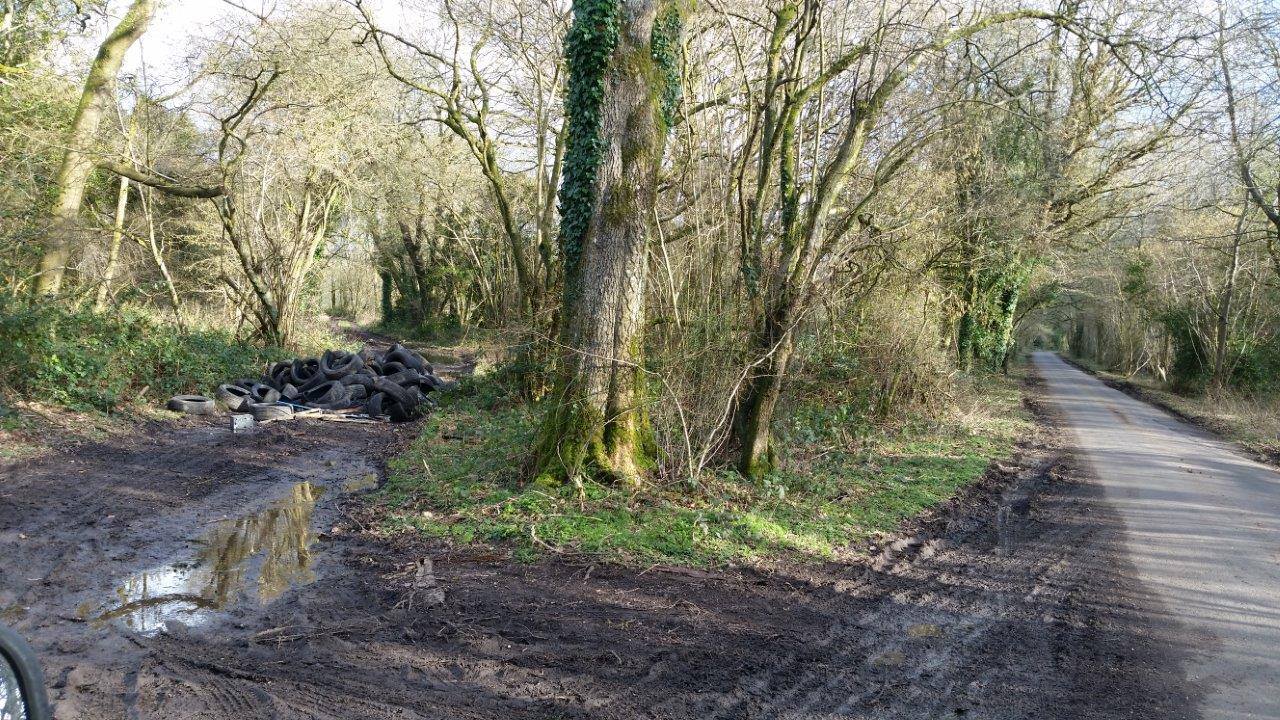Fly Tipping
Fly tipping is the illegal disposal of waste, as opposed to using an alternative option such as kerbside collection or using an authorised rubbish recycling centre. Waste can include liquid or solids on either land or in water. This differs from littering which is the incorrect disposal of one-off items such as a plastic bottle or a crisp packet.
Fly tipping can include the disposal of large household items or bags of waste, which is generally deposited on public land or the roadside. Common items include mattresses, white goods, furniture, tyres, gardening/tree felling matter, or black bin bags containing mixed household waste. It can also be larger quantities of waste generated through trade, including hazardous waste such as oil or asbestos.
Fly tipping most commonly occurs on areas such as country roads, private land, derelict land and on the outskirts of urban areas. This is a criminal activity that is not only unsightly but also harmful to the environment and wildlife.
As the local authority, Test Valley Borough Council is responsible for investigation, clearing and taking appropriate action in regards to small scale fly tipping on public land. The Environment Agency is responsible for dealing with incidences in which there is more than a lorry load of waste, if the waste is hazardous, or if the incidence is linked to organised gangs.

If you spot fly tipping in the course of your travels, please contact TVBC who will deal. Please also send details to the Parish Council (with a photo if you are able, and if it's safe to take one) as we try to highlight the issue as much as possible through social media.
There is also some handy advice from Hampshire County Council regarding fly tipping and waste disposal.
The decision to add this information page came about as a result of an email from a nationwide company who made contact regarding the increasing problem, particularly during the spring and summer of 2020 when the Covid-19 coronavirus pandemic caused local recycling centres to close, causing a sharp increase in the fly tipping offences. Their website provides a national skip search engine, and they did provide a link to information regarding fly tipping about which they are very passionate. (NB The Parish Council does not endorse this company regarding its services or use of individuals' data).